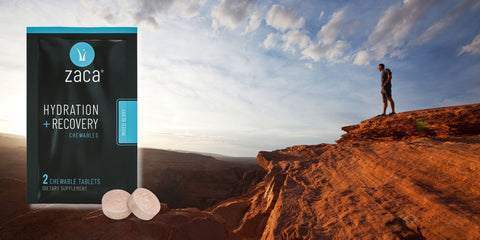Pueblo Colorado Altitude: 5 Expert Tips

Nestled in the heart of Colorado, Pueblo is a city where visitors often underestimate its heights. In this guide, as a local company we’ll detail Pueblo Colorado altitude and five expert tips on how to avoid altitude sickness in Pueblo.
Pueblo Colorado Altitude
Pueblo altitude sits at 4,692 feet above sea level. While this is just under the height of Colorado Springs (6,035 ft) and Denver (5,280 ft), Pueblo’s elevation still takes visitors by surprise.
Pueblo Colorado Altitude:
Pueblo altitude - 4,692 ft (1,430 m)
You’ll want to be prepared for the altitude of Pueblo Colorado if coming from sea level.
Is Pueblo Colorado High Desert?
Yes, Pueblo Colorado is considered high desert at 4,692 feet high.
Generally, high desert is the specific name given to deserts in California and Oregon with above average elevations. The altitudes typically range from 2,000 to 6,000 feet high, which puts Pueblo in the same category as a semi-arid desert.
Is Pueblo Colorado Mountainous?
No, Pueblo is not mountainous.
While Pueblo is considered to be in the western foothills of the Rocky Mountains, it’s not in the mountains. Just West of the city, a short drive away, you’ll see the mountains start though.
Can You Get Altitude Sickness In Pueblo Colorado?
Yes, you can get altitude sickness in Pueblo Colorado.
In Denver, at only a little over 500 feet difference, it’s common for visitors to experience altitude sickness. Travel Medicine Consultants estimates altitude sickness to start at 4,000 feet,³ which puts Pueblo well in the range of risk.
5 Expert Tips To Avoid Pueblo Altitude Sickness
Altitude sickness is a common concern for visitors in most areas of Colorado, including Pueblo.
As a local based company, we have over a decade of high-altitude experience to share including expert tips to help you avoid the misery.
Here’s 5 Expert Tips To Avoid Pueblo Altitude Sickness:
1. Take It Easy
Pace yourself upon arrival in Pueblo. When you’re coming from out of state, especially sea level, your body will be shocked ascending to such high elevations.
Avoid strenuous activities and take breaks frequently to give yourself a chance to adjust before diving into more intense adventures.
2. Get Ample Sleep
Sleep is an elixir of recovery. It’s even been shown to increase blood flow and oxygen.⁵
Ample sleep is required when adjusting to altitudes, 7-9 hours a night is optimal. In addition if you get a good amount of natural sunlight during the day, it can help melatonin production at night for better sleep quality.
3. Enhance Your Hydration
The air at higher elevations is often drier, but also your body has increased fluid loss due to increased respiration, estimated to be twice as fast.⁶
To combat dehydration, drink plenty of water throughout the day. It’s commonly recommended to aim for drinking half your body weight in ounces of water per day.
4. Avoid Alcohol
While it might be tempting to indulge in a drink or two, alcohol can cause another set of issues to add damage including headaches and nausea. This will not mix well with altitude sickness.
If coming from sea level, it's advisable to limit alcohol consumption during your first few days at altitude in Pueblo or until you feel acclimated.
5. Supplement Antioxidants
High elevations have been shown in research to cause oxidative stress in the body.⁷ Glutathione for example, known as the body’s master antioxidant, depleted by 45% in a high-altitude study.⁹
Antioxidants can be an effective nutrient to ward off free radical damage and oxidative stress.⁸ Supplement antioxidants such as glutathione to support your body’s natural antioxidants.
By following these expert tips, you can significantly improve your time in Pueblo. To recap, take it easy, get ample sleep, enhance your hydration, avoid alcohol, and supplement antioxidants to help avoid Pueblo altitude sickness.
Colorado-Favorite Supplement For Elevation Support

The go-to supplement for elevation support, Zaca chewables helps you rehydrate and recover faster. Zaca seamlessly blends science and nature to bring you a robust and effective solution. These chewables are loaded with antioxidants and other nutrients to naturally boost and replenish your body. Whether you're an avid hiker, a dedicated skier, or simply a traveler, these chewables come in portable packets to use anytime. Simple take 2-4 chewables per day or whenever needed. Try Zaca’s chewable supplement today and elevate your performance.
SOURCES:
1. Pueblo Colorado Elevation
https://en.wikipedia.org/wiki/Pueblo,_Colorado
2. High Desert
https://www.oregonencyclopedia.org/articles/high_desert/
3. High Altitude Illness
https://www.travelsurenyc.com/high-altitude-illness/
4. Altitude Of Pueblo Colorado
https://whatismyelevation.com/location/38.280388,-104.630007/Pueblo,_Colorado
5. Benefits of Sleep for Exercise Recovery
https://www.acefitness.org/resources/everyone/blog/7818/7-benefits-of-sleep-for-exercise-recovery/
6. Why Do You Need to Drink a Lot of Water at a High Altitude?
https://www.livestrong.com/article/360485-how-to-train-for-high-altitude-hiking
7. High altitude and oxidative stress
https://pubmed.ncbi.nlm.nih.gov/17482529/
8. Oxidative Stress and Diseases Associated with High-Altitude Exposure
https://www.ncbi.nlm.nih.gov/pmc/articles/PMC8868315/
9. Effect of high altitude (7,620 m) exposure on glutathione
https://pubmed.ncbi.nlm.nih.gov/11320641/
10. Britannica Elevation Of Pueblo Colorado
https://www.britannica.com/place/Pueblo-Colorado

